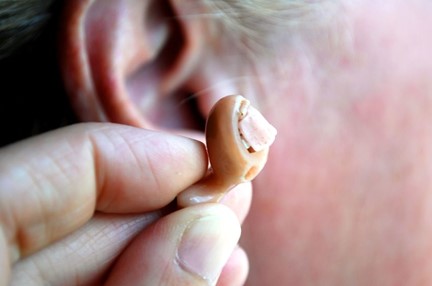
Helping Seniors with Sensory Impairment
According to research published by the National Institutes of Health, nearly 67 percent of seniors in the United States suffer from two or more sensory deficiencies. Most people are familiar with a loss of hearing or sight with age, but many seniors also develop a loss of sense, taste, and spatial awareness. While some sensory impairments may not be preventable, understanding how they affect the body can help you better assist your loved one.
What is Sensory Impairment
Sensory impairment refers to abnormal changes in one of your senses; vision, hearing, smell, taste, or touch. The Centers for Disease Control and Prevention reports the most common sensory impairments in adults aged 70 years and older are visual and hearing impairments. While smell and taste disturbances are less common, they are also often overlooked. Those suffering from smell impairments may have an underlying condition affecting their sinuses or nasal passages. Taste impairments may also be a sign of a more severe problem, such as oral infections.
Some research shows those suffering from depression or cognitive disorders such as dementia may be at higher risk for experiencing sensory impairments. Some seniors may also develop a condition called sensory processing disorder, in which they have trouble making sense of information that comes in through their senses. If your loved one suffers from sensory processing disorder, they may experience a sensitivity to touch, poor balance, or difficulty engaging in conversation.
Tips for Helping Seniors with Sensory Impairment
Sensory impairments may make daily tasks difficult for seniors, but there are steps you can take to help your loved one remain independent.
- Make sure electronic devices have screen readers. You can download screen reader software onto computers, smartphones, and tablets to read the text on the screen for visually impaired seniors. Some sophisticated screen readers use a braille display for those that are completely blind, but they’re often expensive. Free options such as Apple VoiceOver and ChromeVox may offer enough assistance to help seniors independently navigate their electronics.
- Make your mouth visible when talking. If you’re communicating with someone who has difficulty hearing, be sure to make your mouth visible when talking. Seeing lip movement and reading facial expressions makes it easier to understand what you’re saying. Unfortunately, with masks, it may not be possible to make your mouth visible when speaking. If you’re able to get a clear faceguard, use that instead of a mask when communicating so the senior can see what you’re saying. Also, be sure to talk in a well lite area so they can see your face and body language.
- Approach them slowly and calmly. Sensory impairments affect a person’s ability to sense their surroundings. Be sure to approach seniors slowly and calmly so you don’t spook them. If you are coming from behind or the side, lightly touch their arm or shoulder to let them know you are there.
- Have the patience to rephrase and repeat. If your loved one has a hard time hearing, be patient with them and know you may have to repeat yourself. You want to speak loud and clear, but no need to shout. If your loved one is still having trouble understanding you after you repeat yourself, rephrase what you’re saying. You can also offer to write something down and ask them if they’d prefer to communicate with a notepad.
- Serve foods that look like how they should taste. Losing a sense of taste is not the same as not being able to sense flavor. Serving foods with bold flavors and spices can be confusing to the pallet. Instead, serve foods that have natural and simple flavors that one would expect to taste while eating.
How Visiting Angels Can Help
If you or a loved one lives with a sensory impairment, the Visiting Angels Mentor team can help. Our compassionate caregivers can assist with personal grooming, bathing toileting, meal preparation, transportation to doctor’s appointments, light housekeeping, and laundry. Our Mentor office serves those in Lake, Geauga, and Northeast Cuyahoga counties. If you’re interested in learning more about our services, give us a call at 440.974.0869.
